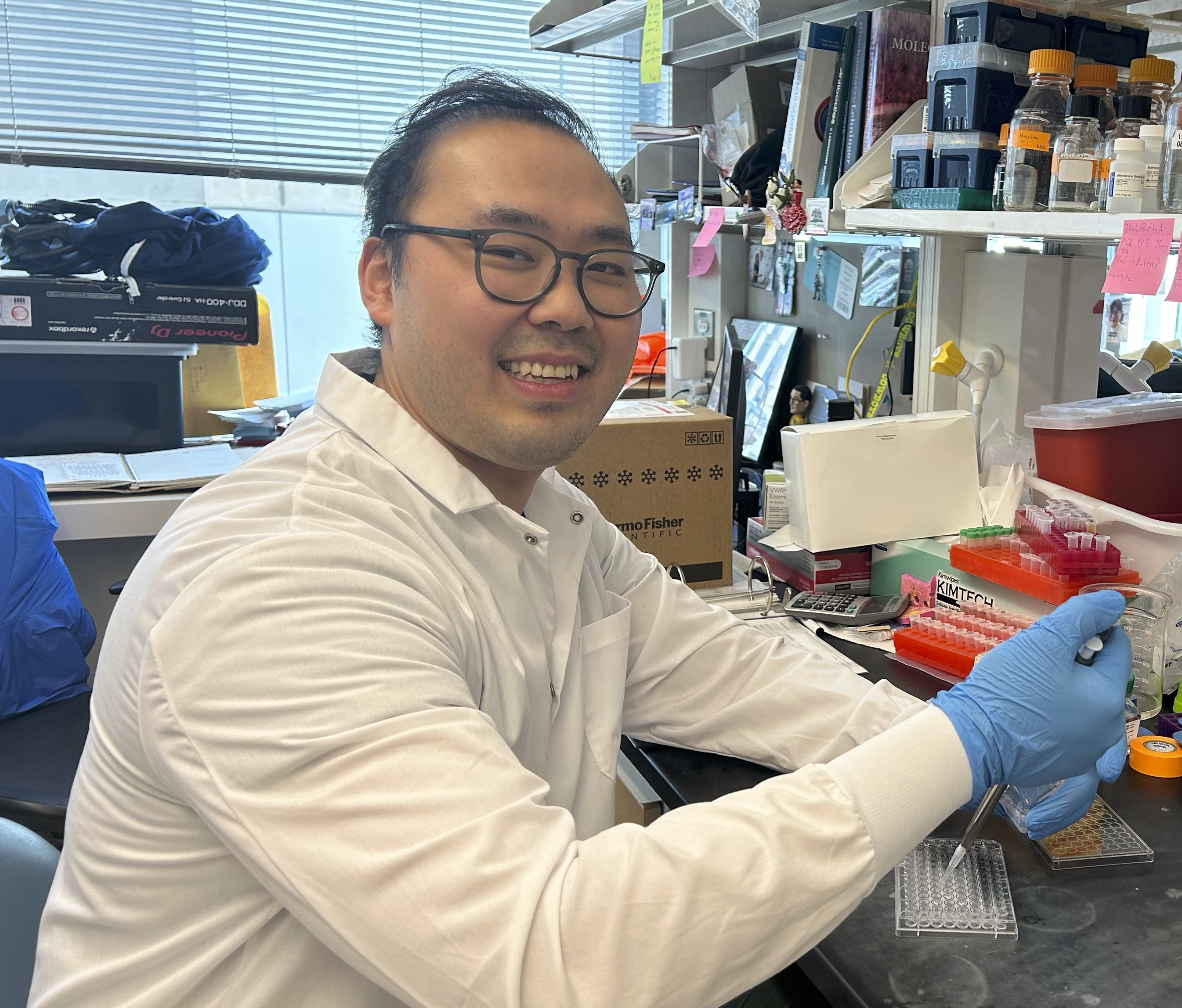Cancer cachexia, characterized by progressive muscle wasting and weight loss in cancer patients, is a common and multifaceted syndrome that negatively impacts patient quality of life. Cachexia has no available treatments to date, due to insufficient knowledge about the underlying mechanisms. Cachexia is particularly prominent in pancreatic cancer patients. Previous work from the Vander Heiden lab has identified that there is diminished secretion of pancreatic enzymes due to the pancreatic cancer, which contributes to tissue wasting because breakdown of muscle tissue can release amino acids into circulation. Dr. Zhang [Bakewell Foundation Fellow] is interested in understanding whether amino acids released from muscle are fueling tumor growth or sustaining the host organism. Specifically, as circulating amino acids are often used by the liver to produce glucose, Dr. Zhang wants to study how liver glucose metabolism is affected in pancreatic cancer cachexia. This work seeks to improve the quality of life of cancer patients by reducing cachexia while seeking to understand how cancer impacts the whole-body metabolism of the host. Dr. Zhang received his PhD from University of Texas Southwestern Medical Center, Dallas, his MS from Carleton University, Ottawa, and his BScH from Queen’s University, Kingston.
Damon Runyon Researchers
Meet Our Scientists
Yichi (Tony) Zhang, PhD
Project title: "Determining how cancer cachexia influences gluconeogenesis"
Institution: Massachusetts Institute of Technology
Named Award: Bakewell Foundation Fellow
Award Program: Fellow
Sponsor(s) / Mentor(s): Matthew Vander Heiden, MD, PhD
Cancer Type: Pancreatic
Research Area: Metabolism







